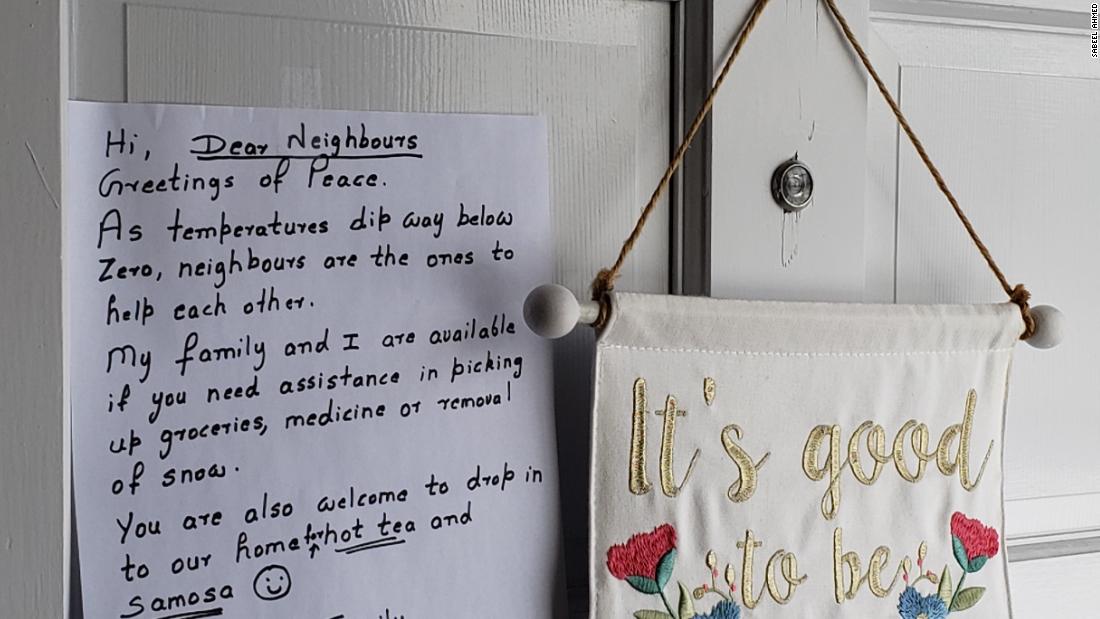
(CNN)Neighbors found unexpected warmth when they opened their front doors this week to the minus-14-degree wind chill in Morton Grove near Chicago. Handwritten notes left behind read: “My family and I are available if you need assistance in picking up groceries, medicine or removal of snow.”
“We need to take care of our neighbors. That was a big motivation for doing this,” Ahmed told CNN. He said he decided to leave the notes after worrying about an elderly woman who lives next door.

Ahmed is director of GainPeace, an Islamic outreach organization. He said he hopes his family’s actions will highlight an important aspect of the Muslim faith: caring for neighbors. “Despite racial and religious differences, at the end of the day, we have to meet.”
“Especially when we have this scary weather,” added neighbor Alexander Slagg, who emailed Ahmed to thank him for spreading kindness. “All the differences don’t matter. What he did, that is awesome.”
So far no one has taken Ahmed up on the offer. But when CNN called, he was helping his neighbor start a car in the freezing cold.
“Teaching our children,” Ahmed said, is another reason for offering help. “It’s not about me. It’s about humanity. It’s about the world.”
The notes all included open invitations to his neighbors: “You are welcome to drop in to our home for hot tea and samosa.”
Ahmed’s daughter put together a YouTube video to help spread the family’s message beyond the handwritten letters.
“It’s an obligation of us as being humans, us as being neighbors, us as being Muslims to not only make sure that we remain safe but we want to make sure that our neighbors, they also remain safe and protected,” Ahmed says in the video.
Ahmed challenges others to do the same. “Hopefully the ice is broken and hopefully there will be more connections made … and neighbors will carry it on, as a ripple effect.”
Read more: http://edition.cnn.com/

